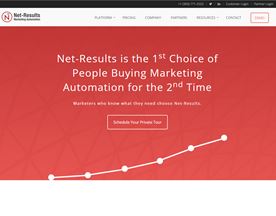Hey there, curious reader! I bet you’ve landed here because you’ve realized that the world of accounting isn’t just about crunching numbers and balancing ledgers anymore. It’s about creating meaningful connections, expanding your digital footprint, and reaching out to potential and existing clients, in ways that resonate with them. Welcome to the exciting realm of marketing for accountants!
First off, let’s address the elephant in the accounting marketing room: Why do accountants even need marketing? Well, let’s paint a picture. Imagine you’re an incredibly skilled pilot. You’ve got the best plane, you know all the flight paths, and you’ve accumulated countless flight hours. But, if no one knows about your fantastic piloting skills, how will you get passengers or clients? That’s precisely where successful accounting marketing always swoops in, ensuring your services are visible and desirable to those who need them.

In the past, accounting was often viewed as a dry, straightforward profession. Clients came to you, usually through referrals or local recognition. But we’re no longer living in a world where simple word-of-mouth referrals or an ad in the local newspaper will do the trick. The digital age has revolutionized the way businesses operate, and the accounting profession is no exception. With the rise of digital platforms and the internet, potential new clients are just as likely to Google “best accountant near me” as they are to ask a friend or family member for recommendations.

Now, here’s a reality check. The digital space is crowded. There are countless websites, ads, and social media profiles vying for attention. So, merely having a website or a LinkedIn profile isn’t going to cut it. To truly shine in this digital jungle, you need a well-thought-out, marketing plan and strategy. One that not only promotes your services but also establishes you as a trustworthy, knowledgeable expert in your field.

But I get it. Diving into the vast ocean of marketing can feel daunting, especially if you’re more comfortable with balance sheets than branding strategies. Questions might be swirling in your mind: How do I even start? What platforms should I use? How do I differentiate myself from the competition? Worry not! Consider this guide your trusty compass, pointing you in the right direction.

So, why should you, as an accountant, consider diving deep into marketing? Well, because it’s no longer just a ‘nice to have’; it’s a ‘must-have’. In a world where clients are more informed, more selective, and have a plethora of choices at their fingertips, standing out is imperative. And that’s precisely what effective marketing can help you as small business owners achieve.

Marketing for accountants is an essential strategy in today’s digital age. By leveraging modern tools, techniques, and platforms, accountants can expand their reach and grow their client base.

The Pillars of Effective Marketing for Accountants
1. Branding
In the modern business landscape, branding is so much more than just a catchy name or a memorable logo. While these elements are certainly important, branding dives much deeper, encompassing the very essence and soul of your accounting firm.
Think of branding as the story you tell about your successful business together, the emotions you evoke in your clients, and the unique position you occupy in their minds.
Why is Branding Crucial for Accountants?
Accounting, for many, can seem like a uniform, standardized service. After all, numbers and marketing and most accounting firms’ services are numbers, right? But here’s where branding flips the script. With effective branding, you can transform the perception of your accounting firm from just another number-crunching entity to a trusted financial ally, a guide, or even a visionary partner.
Understanding Your Brand Identity
Before you can communicate your brand to the world, you must first understand it yourself. Dive deep and introspect:
- Values & Mission: What principles drive your firm? Maybe it’s transparency, dedication to client success, or innovative financial solutions. Your values are the backbone of your brand.
- Unique Selling Proposition (USP): In a sea of accountants, what makes you stand out? It could be your extensive experience, your specialized services, or even your client-centric approach.
- Voice & Personality: If your brand were a person, how would it talk? Is it formal and professional, warm and friendly, or perhaps insightful and wise? This voice should be consistent across all your communications.
Visual Branding Elements
The visual elements of your brand, such as your logo, color scheme, and typography, play a pivotal role in making your brand recognizable and memorable. These elements should:
- Reflect your brand’s personality and values.
- Be consistent across all platforms, from your website to your business cards.
- Stand the test of time. While it’s okay to evolve and refresh your visual identity, frequent drastic changes can confuse your audience.
Client Experience as a Branding Tool
Lastly, remember that every interaction a business owner or client has with your firm, from the first website visit to the final invoice, shapes their perception of your brand. Ensure that the experience you provide aligns with the brand image you wish to portray to potential customers. If your brand promises efficiency and innovation, then lengthy, outdated paper processes would be a mismatch.
Key Points:
- Branding is the story, emotion, and perception associated with your accounting firm.
- Understand your brand’s values, USP, voice, and visual identity.
- Consistency in branding, both visually and in client interactions, is paramount.
- Effective branding differentiates your firm, making it memorable and desirable in a competitive market.
2. Digital Presence
In today’s interconnected world, having a robust digital presence isn’t just a luxury—it’s a necessity. Imagine the digital landscape as a bustling city, and your digital presence as your storefront. It’s the face of your accounting firm, the first point of contact for many potential clients, and the platform where they’ll decide if they want to do business with you.
Why a Digital Presence Matters for Accountants
There’s a vast online community of potential clients for many accounting firms looking for trustworthy and proficient accountants. Many of these clients rely on online research, reviews, and website credibility before making a decision. If your firm isn’t visible online, you’re essentially invisible to this large demographic.
Website: Your Digital Storefront
Your website serves as the foundation of your digital presence. Here’s what you need to consider:
- Design: A clean, modern design not only looks professional but also helps visitors easily navigate your site.
- Mobile Responsiveness: With many users browsing on mobile devices, ensure your site functions seamlessly across all device types.
- Content: Populate your site with valuable content. Highlight your services, share client testimonials, and offer insights through articles or blogs.
- Call-to-Action (CTA): Guide your visitors toward desired actions, whether it’s contacting you, downloading a resource, or signing up for a newsletter.
Search Engine Optimization (SEO)
SEO isn’t just a buzzword; it’s a critical component of your digital strategy. By optimizing your website for search engines:
- You increase your site’s visibility on platforms like Google.
- Drive organic (unpaid) traffic to your site.
- Position yourself as an authority in the accounting domain.
Social Media: Building Community & Engagement
While a website is essential, it’s equally important to be active on social media platforms relevant to your own target market and audience. Through platforms like LinkedIn, Twitter, or even Facebook:
- Share updates, industry news, and insights.
- Engage with your audience through comments, polls, or Q&A sessions.
- Build a community of loyal followers and potential clients.
Online Reviews and Reputation Management
Clients trust online reviews. Encourage satisfied clients to leave positive reviews on platforms like Google My Business or industry-specific review sites. Equally important is to address any negative feedback with professionalism, demonstrating your firm’s commitment to client satisfaction.
Digital Advertisements
While organic growth is fantastic, sometimes you might want to do viral marketing to give your firm a little push. Digital advertising platforms, like Google Ads or LinkedIn ads, allow you to target specific demographics, ensuring your services are showcased to those who need them the most.
Key Points:
- A strong digital presence is essential in today’s online-driven world.
- Your website is the foundation, but elements like SEO, social media, online reviews, and digital advertisements amplify your reach.
- Digital platforms enable accountants to engage with their audience, build trust, and establish authority.
- Consistent activity and engagement across digital channels position your accounting firm as a top choice for potential clients.
3. Social Media Engagement
Ah, social media! The buzzing marketplace of ideas, conversations, and opportunities. For accountants, this space might seem a tad overwhelming or even frivolous at first glance. But, with the right approach, social media can be a goldmine for building relationships, showcasing expertise, and driving business growth.
Why Social Media is a Game-Changer for Accountants
Traditional accounting might evoke images of ledgers, calculators, and serious-faced professionals in suits. But, in today’s era, clients aren’t just looking for a number-cruncher. They’re seeking a financial partner, someone they can trust, relate to, and understand. Social media allows you to humanize your brand, making it more relatable and approachable.
Choosing the Right Platforms
Not all social media platforms serve the same purpose, and you don’t need to be everywhere. It’s crucial to select platforms that align with your target audience local marketing and business goals.
- LinkedIn: A must-have for B2B services, it’s a platform for professionals. Share industry insights, company news, and engage with other businesses.
- Twitter: Great for sharing quick updates, articles, or joining industry-related conversations.
- Facebook: Useful for community building, especially if you serve local businesses or individuals.
- Instagram: While it might seem unconventional for accountants, visually appealing infographics, behind-the-scenes glimpses, or even short financial tips can engage a broader audience.
Content is King
What you share on your various social media sites and accounts significantly impacts your brand perception. Aim for a mix of:
- Educational Content: Infographics, articles, or videos explaining complex financial concepts in layman’s terms.
- Industry News: Keep your audience updated on the latest financial news or tax law changes.
- Interactive Content: Polls, Q&A sessions, or even financial quizzes to engage your audience.
- Client Testimonials & Success Stories: Showcase your achievements and build trust.
Engage, Don’t Just Broadcast
Social media isn’t a one-way street. It’s not just about pushing out content; it’s about building genuine relationships. Respond to comments, engage in conversations, and take feedback seriously. This two-way interaction fosters trust and loyalty.
Consistency is Crucial
A sporadic post here and there won’t cut it. Regular posting and engagement signal that your firm is active, updated, and in tune with the digital age.
Analytics: The Feedback Loop
Most social platforms offer insightful analytics. Regularly review these metrics to understand what’s working, what’s not, and how you can optimize your strategy. Track metrics like engagement rates, follower growth, and content performance.
Key Points:
- Social media humanizes your accounting brand, making it more relatable.
- Choose platforms aligned with your target audience and goals.
- Content quality and consistency are paramount. Aim for value-driven, diverse content.
- Engage with your audience genuinely and regularly. Social media is about building relationships, not just broadcasting messages.
- Use analytics to refine your strategy continually, ensuring your efforts yield tangible results.
4. Email Marketing
In the fast-paced world of fleeting tweets and disappearing stories, email remains a stalwart—reliable, consistent, and remarkably effective. For accountants, email marketing isn’t just a way to communicate; it’s a potent tool to nurture relationships, build trust, and offer value beyond the balance sheet.
The Power of Email for Accountants
While your social media presence is like the bustling town square, email is a more intimate, one-on-one conversation. It’s a space where you can dive deeper, offering tailored advice, sharing comprehensive insights, and truly connecting with your clients.
Segmentation: One Size Doesn’t Fit All
The beauty and video marketing side of email marketing lies in its ability to segment your audience. Different clients have different needs:
- A startup might be interested in tax-saving tips.
- A long-standing corporation might value updates on regulatory changes.
- An individual might appreciate advice on personal finance management.
By segmenting your email list, you can send targeted messages that resonate with each group.
Content: More Than Just Promotions
Email content should be diverse and value-driven:
- Newsletters: Regular updates on industry news, changes in tax laws, or even highlights from your firm.
- Educational Content: Detailed articles, infographics, or e-books on financial topics.
- Personalized Advice: Tailored suggestions or reminders—like tax filing deadlines.
- Promotions: While it’s okay to promote your services or special offers occasionally, ensure it’s not the sole focus of your emails.
Design and Responsiveness
The design of your email plays a pivotal role in engagement:
- Mobile Optimization: Many people read emails on their phones. Ensure your emails look good and are interactive on mobile devices.
- Clean Design: Use a clutter-free design with clear CTAs (Call-to-Action).
- Visual Elements: Incorporate images or infographics to break the monotony of text and make the content engaging.
Building and Maintaining Your Email List
An email list is only as good as its subscribers. Build your list organically:
- Opt-in Forms: Include these on your website or blog. Offer value, like a free e-book or a financial checklist, in exchange for their email.
- Never Buy Lists: Purchased lists not only tarnish your reputation but can also violate various data protection regulations.
- Unsubscribe Option: Always include an option to unsubscribe. It’s ethical and ensures you’re only reaching out to those genuinely interested.
Measuring Success: Beyond Open Rates
While open rates give an indication of the effectiveness of your email campaigns, delve deeper:
- Click-through Rates: How many recipients interacted with your content or CTAs?
- Conversion Rates: Did the email drive the desired action—like a consultation booking or a webinar sign-up?
- Feedback and Replies: Engage with subscribers who reply to your emails. Their feedback is invaluable for refining your approach.
Key Points:
- Email marketing offers a personal, direct line of communication with clients and prospects.
- Segment your list to deliver tailored content that resonates with different audience groups.
- Prioritize value-driven content, ensuring your emails are informative and relevant.
- Design matters. Optimize for mobile and maintain a clean, interactive design.
- Build your email list ethically and respect subscribers’ choices.
- Measure success using a range of metrics, continually refining your approach based on feedback and results.

Software Tools to Boost Your Marketing Efforts
In our digital age, leveraging the right software tools can significantly amplify your marketing efforts, streamline processes, and provide invaluable insights. These tools are like the backstage crew in a theater production, working diligently behind the scenes to ensure everything runs smoothly. Let’s dive into some of these essential tools and explore how they can elevate your marketing game.
SEO Tools:
Ahrefs
Ahrefs is a comprehensive SEO toolset that offers a range of features from keyword research to site audits.
Why It’s Useful: Understand your site’s SEO health, discover content opportunities, analyze backlinks, and monitor competitor strategies. It’s particularly beneficial for accountants looking to rank higher on search engines and attract organic traffic.
SEMrush
SEMrush is an all-in-one marketing toolkit that caters to various needs, including SEO, paid traffic, and social media.
Why It’s Useful: Beyond SEO, SEMrush provides insights into paid advertising opportunities, and content marketing and optimization, and even social media engagement. It’s versatile and covers multiple facets of digital marketing.
Social Media Scheduling:
Buffer
Buffer is a user-friendly platform designed to schedule, publish, and analyze all your social media posts in one place.
Why It’s Useful: For accountants juggling multiple tasks, Buffer allows for consistent social media posting without daily manual input. It also provides performance analytics to refine your social media marketing strategy.
Hootsuite
Hootsuite is a social media management platform that supports various networks and offers tools for scheduling posts, monitoring mentions, and analyzing performance.
Why It’s Useful: Beyond scheduling, Hootsuite’s monitoring capabilities let accountants track brand mentions, engage with their audience in real-time, and stay updated with industry conversations.
Email Marketing:
Mailchimp
Mailchimp is a popular email marketing platform that allows for campaign creation, audience segmentation, and performance analysis.
Why It’s Useful: Accountants can use Mailchimp to send out newsletters, tax reminders, or industry updates. Its user-friendly interface and automation capabilities make email marketing a breeze.
SendinBlue
SendinBlue is an email and SMS marketing platform that focuses on automation, segmentation, and campaign optimization.
Why It’s Useful: Apart from email marketing, accountants can use SendinBlue for transactional emails and SMS campaigns, ensuring multi-channel communication with clients.
CRM (Customer Relationship Management):
HubSpot
HubSpot is an integrated platform offering CRM, marketing, sales, and customer service tools.
Why It’s Useful: Accountants can manage client relationships, track leads, and even automate specific tasks. The integrated approach means all client interactions, from emails to meetings, are stored in one place.
Salesforce
Salesforce is a robust CRM platform that helps businesses connect with their customers, streamline processes, and improve profitability.
Why It’s Useful: For larger accounting firms with diverse client bases, Salesforce offers advanced segmentation, automation, and integration capabilities. It’s customizable and can be tailored to specific business needs.
Key Points:
- The right software tools can significantly amplify and streamline marketing efforts.
- SEO tools like Ahrefs and SEMrush help accountants improve their online visibility.
- Social media management tools, such as Buffer and Hootsuite, ensure consistent online engagement.
- Email marketing platforms like Mailchimp and SendinBlue facilitate regular communication with clients.
- CRM tools, including HubSpot and Salesforce, help manage and nurture client relationships effectively.

FAQs
Navigating the world of marketing for accountants can seem like a maze, with questions popping up at every corner. To make your journey smoother, let’s tackle some of the most frequently asked questions in this realm.
1. Why is marketing essential for accountants?
In the digital age, the majority of clients begin their search for services online. Marketing ensures that accountants are not only visible but also perceived as trustworthy and skilled professionals in this vast digital landscape. Without effective online marketing activities, even the most competent accountant might get lost in the crowd of search results.
2. How can I differentiate my accounting firm from others?
Differentiation begins with understanding your unique strengths and values. What services do you offer that others don’t? What’s your firm’s philosophy? Once identified, weave these unique points into your branding, content, and communication. Also, consider niches or specialized industries you serve, showcasing expertise in those areas.
3. Is social media necessary for accountants?
Absolutely! While you might not need to be on every platform, certain platforms like LinkedIn are invaluable for B2B networking and showcasing expertise. Social media allows for real-time engagement, brand building, and even lead generation.
4. How often should I update my website?
A website isn’t a “set it and forget it” tool. Regular updates, both in terms of content and design, ensure that your site remains relevant, functional, and search-engine friendly. Consider monthly content updates and bi-annual design/functionality checks.
5. What kind of content should accountants post on social media?
Balance is key. Share a mix of industry news, firm updates, client testimonials networking events, and educational content. Interactive content, like polls or Q&A sessions, can also engage and grow your audience.
6. Can email marketing be automated?
Yes, and it often should be. Tools allow you to segment your audience and send tailored messages, schedule emails in advance, and even set up automated campaigns, such as a series of emails for new subscribers.
7. How do I measure the success of my marketing efforts?
Metrics! Track website traffic, social media engagement, email open and click-through rates, and lead conversions. Over time, these metrics will provide insights into what’s working and where adjustments are needed.
8. Should accountants invest in paid advertising?
Paid advertising can amplify your reach. Platforms like Google Ads or LinkedIn sponsored content allow targeted advertising, ensuring your content reaches the right audience. However, always monitor ROI to ensure cost-effectiveness.
9. How do I know which social media platform is best for my firm?
Research and experimentation. Understand where your target audience spends most of their time and start there. Monitor engagement and adjust your strategy accordingly.
10. Is branding just about having a logo?
Far from it! While logos are a recognizable part of branding, true branding encompasses your firm’s values, voice, messaging, and overall client experience. It’s the emotion a client feels when thinking of your firm and the expectations they have.
Key Points:
- Marketing for accountants is no longer optional; it’s crucial in the digital age.
- Differentiation, both in services and in branding, sets your firm apart.
- Social media is a valuable tool for engagement and visibility.
- Regular updates, both on websites and social platforms, keep your brand relevant and engaging.
- Metrics provide insights into the effectiveness of marketing strategies.
- Branding is a comprehensive process, going beyond just visual elements.

Conclusion
As we come to the end of this comprehensive guide, it’s essential to pause and reflect on the transformative power of effective marketing in the accounting world.
The digital age has not only reshaped our daily lives but also revolutionized many firms and how businesses, including accountants, connect with their clients.
Let’s face it; the accounting industry, at its core, is about trust. Clients entrust accountants with their financial well-being, seeking guidance, clarity, and peace of mind. In this journey of trust-building, marketing plays a pivotal role. It’s the bridge that connects your expertise to the needs and aspirations of your clients.
While the tools and platforms of marketing have evolved—shifting from billboards to blogs, from TV spots to tweets—the essence remains unchanged. It’s about storytelling, about crafting a narrative that resonates, informs, and inspires.
It’s about humanizing your brand, showcasing not just your skills, but also your values, passions, and commitment.
For many accountants, the world of marketing might seem overwhelming, perhaps even intimidating. But remember, at its heart, marketing is a conversation. It’s an ongoing dialogue with your current clients and potential clients, a platform to listen, engage, and offer value.
As you embark on this marketing journey, here are a few things to always keep in mind:
- Stay Authentic: In a world saturated with content and advertisements, authenticity stands out. Be genuine in your communication, true to your brand, and consistent in your promises.
- Adapt and Evolve: The digital landscape is ever-changing. Stay updated with the latest trends, tools, and techniques. But, more importantly, be willing to adapt, experiment, and evolve.
- Value First: Always prioritize offering value. Whether it’s a blog post, an email newsletter, or a social media update, ensure it enriches the reader in some way.
- Build Relationships: Beyond conversions and click-through rates, focus on building lasting relationships. Engage with your audience, listen to their feedback, and always strive for long-term connections over short-term gains.
In conclusion, a digital marketing strategy for accountants is not just a strategy; it’s an opportunity. An opportunity to expand your reach, amplify your impact, and truly make a difference in the lives of your clients. So, dive in with enthusiasm, armed with the knowledge and insights from this guide. The world of digital marketing for accounting firms awaits, filled with endless possibilities and potential. Embrace it, and watch your accounting practice soar to new heights!















